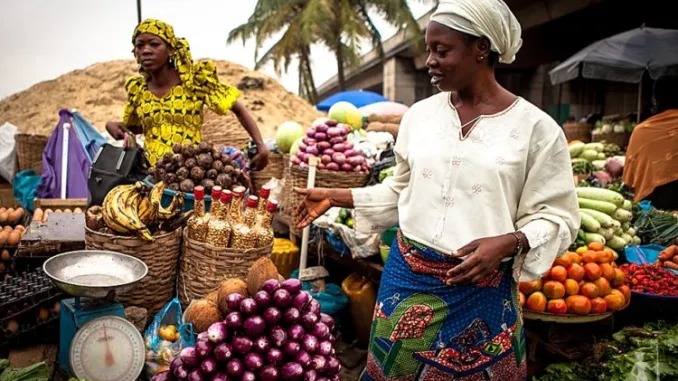World Bank Says Nigeria’s 2024 Inflation Rate Will Drop To 24.8 Per cent
 The World Bank, on Monday, said Nigeria’s inflation rate will drop to 24.8 per cent year-on-year, YoY, in 2024.
The World Bank, on Monday, said Nigeria’s inflation rate will drop to 24.8 per cent year-on-year, YoY, in 2024.
The development comes after the Nigerian Bureau of Statistics (NBS) pegged the current rate at 31.7 per cent in February from 29.9 recorded in January.
“Inflation is cooling in most Sub-Saharan African economies but remains high. The median inflation in the region is projected to fall from 7.1 per cent in 2023 to 5.1 per cent in 2024 and 5 per cent in 2025–26. The normalization of global supply chains, steady decline of commodity prices, and impacts of monetary tightening and fiscal consolidation are contributing to a lower rate of inflation in the region.
“Although inflation is receding in most countries in 2024, it remains high compared to pre-pandemic levels: inflation is projected to decrease in about 80 per cent of African countries compared with 2023, but it is still higher than pre-pandemic levels in 32 of 37 countries. Moreover, 14 countries in the region still exhibit persistently high levels of inflation (two or more digits) this year—with a median inflation rate that has dropped modestly from 25.9 per cent in 2023 to 24.8 per cent in 2024,” the report said.
The report also reaffirmed its projection of 3.3 per cent economic growth for the country in 2024, and reduced its projection for 2025 to 2026 by 0.1 percentage points to 3.6 per cent from its January projection of 3.7 per cent.
“Growth in Nigeria is projected at 3.3 per cent in 2024 and 3.6 per cent in 2025–26 as macroeconomic and fiscal reforms gradually start to yield results,” it added.
“A more stable macroeconomic environment, as the reforms’ initial shock dissipates, will lead to sustained but still slow growth of the non-oil economy.
“The oil sector is expected to stabilize with recovery in production and slightly lower prices. Structural reforms will be needed to foster higher growth.
“Average inflation will remain elevated at 24.8 per cent in 2024, although it is expected to ease gradually to 15.1 per cent by 2026 on the back of monetary policy tightening and exchange rate stabilization”.
According to the World Bank, food inflation and the weakening of domestic currencies are still major drivers of inflation across countries in the Sub-Saharan Africa region.
It added: “By February 2024, about one-third of the Sub-Saharan African countries with monthly available food price information (14 of 40 countries) had double-digit year-on-year rates of food inflation, with the fastest increases experienced in Ethiopia, Malawi, Nigeria, Sierra Leone, and Zimbabwe.”
It also noted that the rate of poverty reduction in the region is slow and that Nigeria and the Democratic Republic of Congo account for one in three of those living in extreme poverty.
“The region also faces the triple challenges of high extreme poverty, high inequality, and low transmission of growth to poverty reduction.
“The speed of poverty reduction has decreased tremendously since 2014. The rate of reduction was 3.1 per cent between 2010 and 2014, subsequently decreasing to 1.2 per cent between 2014 and 2019,” World Bank said.
“In contrast, the rest of the world reduced extreme poverty on average by 9.2 per cent per year within the same time horizon, suggesting that the Africa region is falling further behind.
“In addition, there is substantial regional heterogeneity in where the poor are with Nigeria and the Democratic Republic of Congo accounting for one in three of those living in extreme poverty.”
It added that the region can accelerate growth and poverty reduction substantially by tackling inequality, specifically structural inequality.













